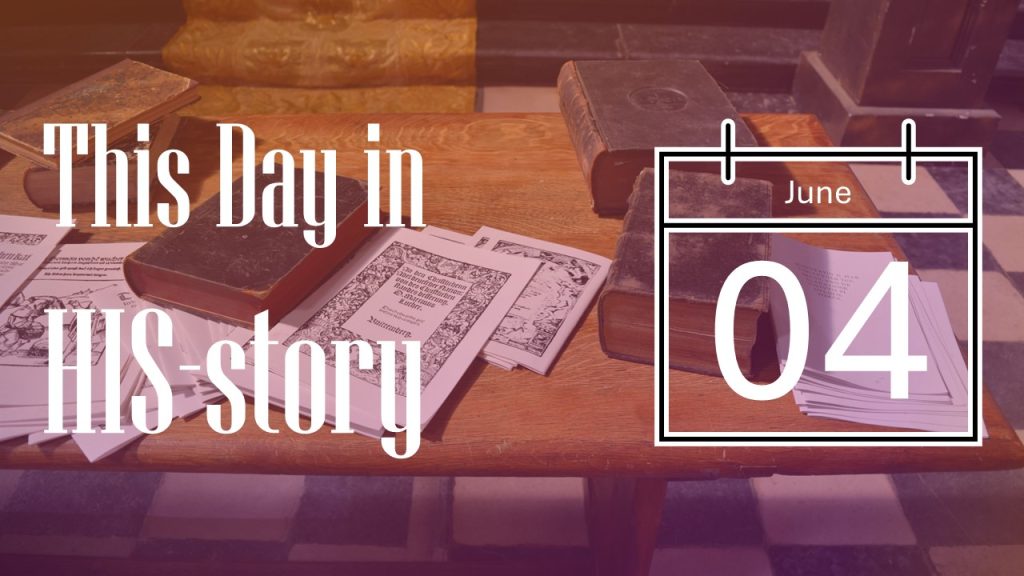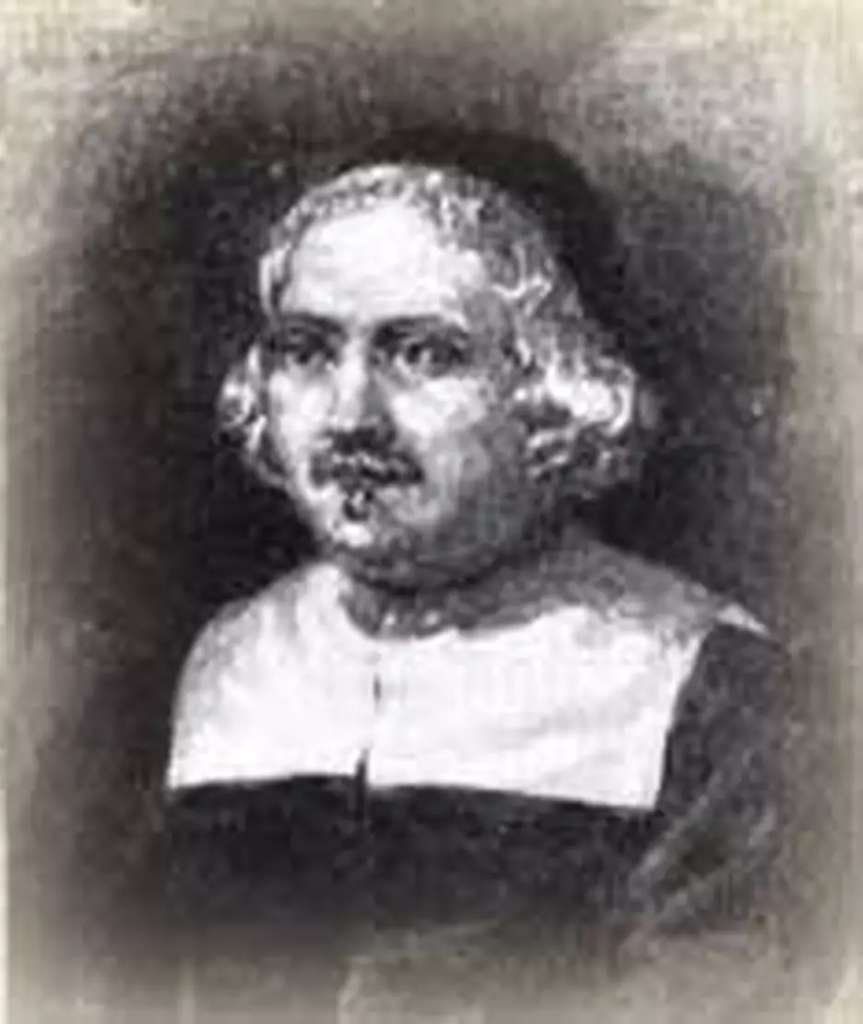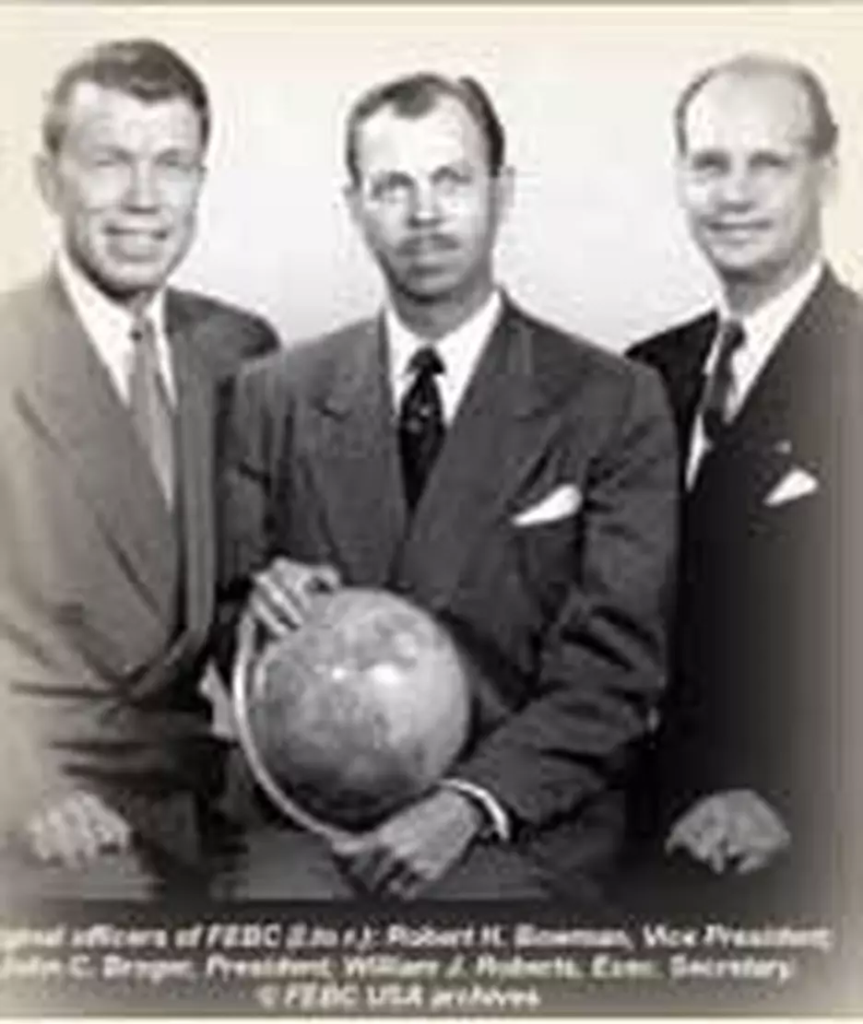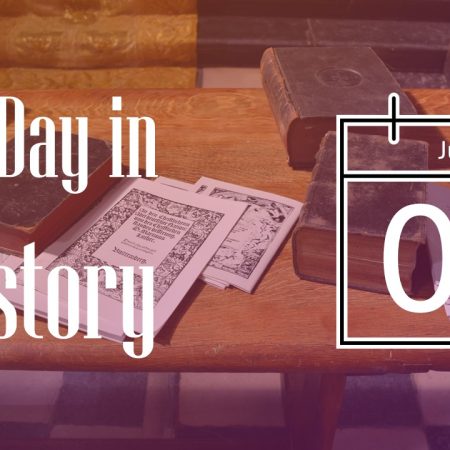
1649
The first log cabin of New Haven went up in the fall of 1637. A few men wintered on the bay that year and in the spring more arrived. Among them was the Reverend John Davenport.
Strong religious overtones marked the formation of the “colony” as the town called itself. Davenport helped form that religious consensus. For example, his first Sabbath day in New Haven, he preached to the little company under one of the many elms which would give the city its nickname, “City of Elms.

Having paid the Indians for land, the settlers sought to establish a colony. Scripture would rule them, they decided. They agreed to meditate and pray for God’s illumination on the best way to organize and govern themselves. In 1639, they came to consensus. Again John Davenport played an important role. On this day, June 4th, 1649 the men of New Haven assembled in a barn where he preached and prayed earnestly and proposed four fundamental articles for the governance of the “colony.”
His four articles were simple. (1) Scripture contains the perfect rule for government by men in commonwealth, church and family; (2) They were to be guided by scripture; (3) They would create a church as soon as God fitted them for it, and (4) They would establish a civil order to implement these articles and ensure prosperity for themselves and their descendants.
The organization New Haven created was theocratic. Twelve members were chosen to rule the “colony” and seven of them also to serve as the seven pillars of the church, which they organized with the help of nine assistants. They also elected a magistrate and imposed wage and price controls.
This was one of the first autonomous governments by English colonists in the New World. The inhabitants of New Haven swore allegiance only to their own civil government and not to king or parliament. After 23 peaceful years, they were compelled, in 1662, to unite with Connecticut. John Davenport fought this merger fiercely, fearing that Christ‘s interests would be miserably lost in the unification.
Before coming to the new world, Davenport had distinguished himself as a pastor in England. Because of his Puritan leanings, his election to the vicarage of St. Stephens in London was resisted by other ecclesiastics. He was allowed to occupy the post only after denying he was a Puritan. He proved to be a bold and faithful pastor, remaining at this post even during the great plague of 1625.
If not a Puritan at the time he was elected to St. Stephens, Davenport soon became closely linked with them. When Archbishop Laud took power in England, Davenport fled to Holland. Eventually he migrated to New England and became the luminary of New Haven. Men of Davenport’s caliber played leading roles in the young American colonies giving them a strongly Christian tone at their birth.
1824
“How long Pastor’s prayer is this morning,” thought Elvina Hall.
Sitting in the choir loft, Elvina’s mind turned to our need for salvation and the price Jesus paid for it. Words began to form themselves. She had to get them down. But she had no paper. Well, that wasn’t quite true…
Scribbling on the flyleaf of her hymnbook, she wrote:
I hear the Savior say,
“Thy strength indeed is small;
Child of weakness, watch and pray,
Find in Me thine all in all.”Jesus paid it all,
All to Him I owe;
Sin had left a crimson stain,
He washed it white as snow.
Not bad. Not bad at all. After service, she handed the words to her pastor. Did his face crease into a little smile at this evidence of her “naughty” behavior? We may never know.
But we know that an extraordinary “coincidence” occurred at the Monument Street Methodist Church of Baltimore. Organist John Grape had recently written a new tune and given it to the pastor. The pastor saw that the tune and the poem fit together extremely well. So he united them. In that way, one of the church’s most beloved hymns came into being.
Lyrics of “Jesus Paid It All”
- I hear the Savior say,
“Thy strength indeed is small;
Child of weakness, watch and pray,
Find in Me thine all in all.”
- Refrain:
Jesus paid it all,
All to Him I owe;
Sin had left a crimson stain,
He washed it white as snow.- For nothing good have I
Whereby Thy grace to claim;
I’ll wash my garments white
In the blood of Calv’ry’s Lamb.- And now complete in Him,
My robe, His righteousness,
Close sheltered ’neath His side,
I am divinely blest.- Lord, now indeed I find
Thy pow’r, and Thine alone,
Can change the *leper’s spots [*leopard’s]
And melt the heart of stone.- When from my dying bed
My ransomed soul shall rise,
“Jesus died my soul to save,”
Shall rend the vaulted skies.- And when before the throne
I stand in Him complete,
I’ll lay my trophies down,
All down at Jesus’ feet.
Elvina Hall was 45 at that time. Born on this day, June 4, 1820, she was married first to Richard Hall and then, after his death, to a Methodist minister, Thomas Meyers. She died in 1899.
1948
“All hail the power of Jesus’ name,” sang the triumphant radio crew. It was on this day, June 4, 1948. The triumph was a triumph of God’s grace and provision.
If such a story can be said to have a precise beginning, the story of the Far East Broadcasting company began in December, 1945. Three men, John C. Broger, Robert H. Bowman and William J. Roberts pooled their resources–a measly $1,000–to form a non-profit, international Christian broadcasting company. The men had known each other a long time and had often discussed and prayed about the possibilities.

World War II separated them. After the war, they got together again. Although John was just back from the Pacific and his wife did not want to see him go again, he felt that he had to as a soldier of Christ. He hoped to get permits to broadcast in China, but the Nationalist Chinese refused to make a decision. If Christians were allowed to broadcast, Communists could demand the same privilege. John decided to investigate the Philippines.
Two days after the Philippines obtained their independence, John arrived in the islands, seeking a radio station license. It was finally granted. With permission came an “impossible” April 14, 1948 deadline by which the station had to be on air to show “good faith.” The problems were many. Because of the war, building materials were scarce. Frequent typhoons interrupted the work. Power lines lay in water, threatening the men with electrocution. Finances ran low. John was not able to get a final extension. He had to be on the air by 8 p.m. on June 4, 1948. Fighting traffic jams, he raced toward the transmitter and got there just before 6 p.m. All they could do was test the transmitter during its first broadcast. The team joined in singing “All hail the power of Jesus name” as the engineer flicked the switch. FEBC was on the air! They wept as they realized they had met the deadline. Two hours later, the transmitter broke down. But it could be fixed.
Knowing that airwaves can travel where people cannot, the station broadcast Christian messages and Bible studies. People who might otherwise never have heard the Gospel received its light.
The Chinese Communists had mass produced and distributed radios so that they could broadcast propaganda to their people. Thanks to this, hundreds of thousands of Chinese could hear the Christian broadcasts.
Later, the Communist government of China refused to abide by international broadcasting rules. A Filipino official noted that, “From now on it will be the dog with the biggest bark that will be heard in the international bands.” The staff and friends of the Far East Broadcasting Company started to pray for transmitters with a bigger bark.
Some of the most powerful transmitters in the world were owned by the United States government. God demonstrated his power by making two available to the mission from the Office of War Information. Setting these up closer to the Chinese mainland, they were able to blanket the Far East with the message of Christ.
Thanks to God’s work through the Far East Broadcasting Company, native speakers spread the gospel in many Asian languages. Close to two billion people hear the Word of God in their own tongue.
